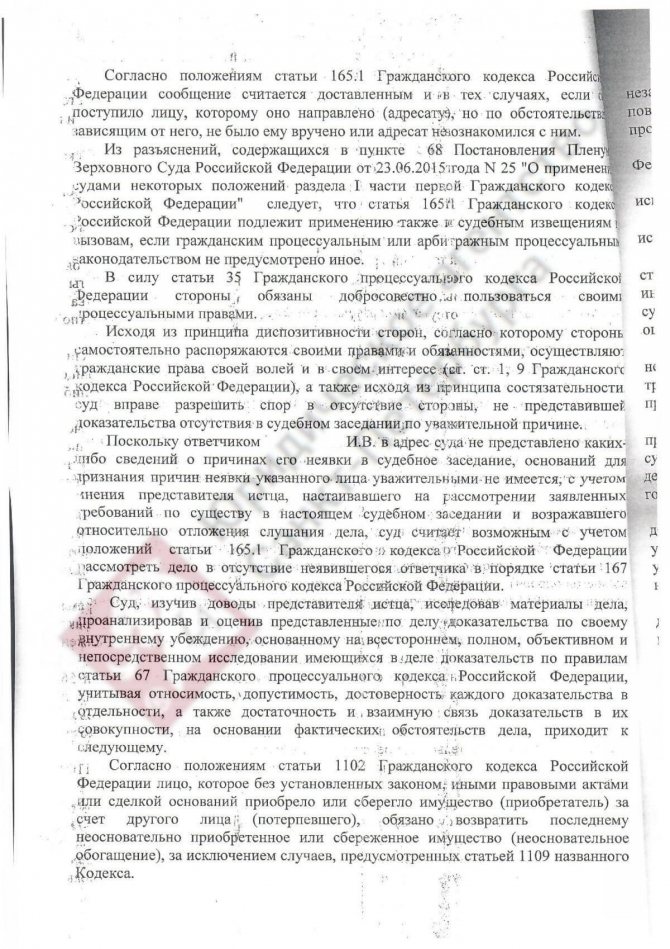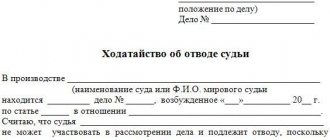Cassation appeal: what is it and what is its purpose?
The cassation procedure requires the filing of a complaint. She must appeal the court ruling, which has entered into force. Provided that this is not a Supreme Court ruling. The main task of the direction under consideration is that this court decision be challenged on the basis of mistakes made.
For example, if these errors were made during the proceedings, and ultimately had a negative impact on the decision made. And if, without correcting the errors in question, it is impossible to achieve a fair resolution of the dispute, protect the interests of the person and eliminate other problems.
Consideration of cassation: when it is necessary to cancel an appeal ruling or court decision
A cassation complaint has much in common with an appeal, which is why they are often confused. But the main difference between a cassation appeal is that it works only with the basis that was available before the decision was made. Will not take into account the circumstances that opened after this. So you will have to take into account the testimony and evidence that already exists when non-compliance with procedural norms is discovered. In this case, the decision is canceled or they undertake to revise it. Cassation will be considered if the case under consideration violated the following norms:
- Did not accept or incorrectly used the norms of the law in the field of protection of material rights;
- The legal provisions regarding the case in question were incorrectly interpreted;
- There is no record of the court hearing in the case under consideration;
- The court hearing the case was not composed correctly or one of the participants, who must be present there without fail, was absent from the meeting;
- The court conference was held without secrecy;
- The participant who was absent from the meeting was not notified of the place and date of the meeting (that is why he could not come).
It must be taken into account that the cassation procedure for considering a complaint is a rather lengthy and difficult process. The reason is also that courts rarely refuse decisions made by lower authorities. That is why, in order to achieve justice, it is often necessary to use the qualified help of a specialist. Especially if you need to make a complaint, indicate which points were violated, etc.
Remember, a refusal in the cassation court does not mean that it is impossible to achieve what you want. You can always file documents in the Supreme Court. It is impossible to challenge his decisions.
New procedure for cassation appeal
Lawyer, Vladimir Bondarchuk
From October 2021, cassation courts begin to work according to new rules, which were the result of the judicial reform ongoing in Russia.
Some media outlets were quick and vociferous in calling the rules a “procedural revolution.”
The reason for such terms was the introduction of the “full cassation” procedure into the cassation appeal stage.
This procedure means that cassation courts will now consider most cassation complaints with the mandatory appointment of court hearings.
It is expected that this will entail a more detailed study of cassation complaints, and therefore an increase in the efficiency of their consideration - with an increase in the percentage of decisions made in favor of the applicants.
Is it really? Let's consider how the adopted innovations in cassation appeal in criminal cases will work.
For a more simplified perception of legislative changes, we will analyze them according to the “question-answer” principle.
Question: What legislative documents establish the new cassation appeal procedure?
Answer: The new cassation appeal procedure is established by:
- Federal Constitutional Law of February 7, 2011 No. 1-FKZ (as amended on March 6, 2021) “On courts of general jurisdiction in the Russian Federation” (with amendments and additions that entered into force on September 1, 2021) – hereinafter “FKZ No. 1".
According to Art. 23.1. Federal Law No. 1 in the Russian Federation established nine cassation courts of general jurisdiction within the territories of the corresponding judicial cassation districts.
The decision on the start date of the activities of these courts is made by the Plenum of the Supreme Court of the Russian Federation and notifies about this no later than October 1, 2021.
- Federal Law of October 11, 2021 No. 361-FZ “On Amendments to the Criminal Procedure Code of the Russian Federation” (Code of Criminal Procedure of the Russian Federation), which establishes in Chapter 47.1. The Code of Criminal Procedure of the Russian Federation has a new procedure for considering cassation complaints in criminal cases – hereinafter referred to as “Federal Law No. 361”.
Changes to Chapter 47.1. The Code of Criminal Procedure of the Russian Federation comes into force from the day the cassation and appeal courts of general jurisdiction begin their activities, that is, also no later than October 1, 2021.
- Resolution of the Plenum of the Supreme Court of the Russian Federation dated June 25, 2021 No. 19 “On the application of the norms of Chapter 47.1 of the Criminal Procedure Code of the Russian Federation governing proceedings in the court of cassation” - hereinafter “PPVS RF No. 19”.
In this document, the Supreme Court of the Russian Federation explains the features of changes in the cassation stage and introduces such concepts as “continuous” and “selective” cassation.
Question: What are selective and complete cassation and what is their difference?
Answer: Selective cassation is the current procedure for considering cassation complaints. Its essence lies in the fact that the complaint is first examined by one judge, who decides whether there are grounds for sending the complaint for consideration in a court session of the cassation court.
Selective cassation is provided for in Article 401.10 of the Code of Criminal Procedure of the Russian Federation, its concept is disclosed in paragraph 2 of the RF PPVS No. 19.
In practice, most cassation complaints are rejected by judges, that is, they do not see any grounds for scheduling a court hearing. In such cases, the result of a single examination of the complaint by the judge is his issuance of a “refusal” decision, which deprives the convicted person and his defense attorney of the right to consider the cassation complaint on the merits.
Complete cassation will begin to apply in October 2021. The new procedure is to abolish the preliminary filter in the person of one judge. In any case, the received complaint will be sent for consideration at the court hearing of the cassation court.
From now on, the judge must study the cassation appeal only to determine whether there are grounds for its return (that is, whether the complaint does not meet the requirements for its preparation). If there are no such grounds, within 20 days the judge makes a decision to schedule a court hearing.
Complete cassation is provided for in Article 401.8 of the Code of Criminal Procedure of the Russian Federation, its concept is disclosed in paragraph 2 of the RF PPVS No. 19.
Question: Will a blanket cassation be applied to all complaints without exception?
Answer: Unfortunately, no. For many cassation complaints, the review procedure will remain the same.
By way of a complete cassation, only cassation complaints against a court verdict that have not entered into legal force as of October 1, 2021 .
If the convicted person has already passed the appeal stage by the specified date or has not filed an appeal, and the court verdict has entered into legal force, his cassation appeal will be considered according to the old rules - in the order of selective cassation.
These requirements are established in paragraph 5 of Article 2 of Federal Law No. 361 and explained in paragraph 28 of the RF PPVS No. 19.
I believe that this rule was established in order to reduce the number of cassation complaints that must be considered in court hearings. If this limitation were not established, the flow of complaints that must be considered on their merits would paralyze the work of cassation judges.
According to the old rules, all interim court decisions made during the trial . For example, a cassation appeal against a court decision to select a preventive measure in the form of detention will, as before, be examined by one judge - with a high probability of subsequent refusal to satisfy it.
In addition, complete cassation will be used only for the first stage of cassation appeal . The Supreme Court of the Russian Federation will consider all received cassation appeals in the old manner .
Question: Which court should I file a cassation appeal under the new rules and what is the procedure for filing it?
Answer: The cassation appeal is addressed to a new cassation court of general jurisdiction - according to the territorial jurisdiction established in part 2 of article 23.1. Federal Law No. 1.
Cassation appeals against court sentences that have not yet entered into legal force on the date of commencement of work of new cassation courts of general jurisdiction are filed through the court of first instance , which takes all necessary actions to further forward these complaints to the cassation court.
Cassation appeals against court sentences that entered into legal force when the new changes took effect, as before, are filed directly with cassation courts of general jurisdiction , where they are considered according to the old rules , which follows from paragraph 6 of part 2 of Federal Law No. 361 and part 3 of Article 401.3. Code of Criminal Procedure of the Russian Federation.
Question: If before the adoption of the changes under consideration, the convicted person had already filed a cassation appeal, and it had already been considered, can he file a new cassation appeal under the new rules?
Answer: No, and again no. New cassation complaints filed on the same grounds will not be considered . Therefore, you should not indulge yourself in illusions about new chances, relying on rumors that are always actively spreading on the eve of legislative changes.
Pros and cons of changes at the cassation appeal stage.
There are only one advantages
Cassation appeals against court sentences that did not enter into legal force on the day the cassation courts of general jurisdiction began operating will be considered on their merits at the first judicial level, which, theoretically, will give the convicted a second chance to review the court verdict.
Minuses
- Cassation complaints can be considered formally in a court hearing, just as it is now happening in an appeal. If this happens, the effectiveness of direct consideration of cassation complaints may be reduced to zero.
- The territorial separation of the courts of first and cassation instances will lead to additional difficulties and material costs for the relatives of convicted persons: transportation costs, payment for travel services of lawyers, search and involvement of defense lawyers practicing at the location of the cassation courts. At the same time, lawyers' fees for cassation will inevitably increase, since now they will have to not only prepare a cassation appeal, but also take part in its consideration.
- The percentage of satisfaction of cassation appeals will not increase due to the shuffling of judges. In conditions of mutual responsibility and strict centralization of the judicial system, at the forefront of which are indicators such as “stability of judicial decisions,” increasing the territorial distance between courts will not make judges more objective and independent.
But, as they say, “hope dies last.” In any case, it is first necessary to see what this “procedural revolution” will look like in practice. I would really like to be wrong in my predictions.
Therefore, for those who have not yet filed a cassation appeal, it makes sense to wait for the new cassation courts to start operating and file a complaint according to the new rules.
It definitely won't be any worse than it is now. The maximum you risk is that the new court will leave your complaint unsatisfied, acting according to the old rules, which have now already shown their ineffectiveness.
Share link:
Filing a cassation appeal: procedure
Filing a cassation appeal is possible if you need to appeal certain decisions, which include:
- Actions of district, military (garrison), magistrates of the first instance, as well as court orders.
- Appeal rulings made by courts on appeals and private complaints. Except for the decision of the Supreme Court.
- The decision was made by the court of appeal on the basis of 320.1 of the Code of Civil Procedure of the Russian Federation (first and second points).
- The decisions made by the presidiums of regional courts.
That is, you can complain about almost all decisions that were not made by the Supreme Court.
Filing a cassation appeal: what requirements can be made
Cassation allows you to both start a new investigation of a case and initiate consideration of an old one. It is important to clearly indicate the requirement, since it is according to it that further actions will be based . That is why it is advisable to indicate that you want a new review. This way there is a greater chance that it will actually be processed correctly and considered with greater responsibility.
For example, in order to obtain a new decision on a cassation appeal, it is necessary that the case contains all the grounds for this. Because the cassation court will simply review existing data. New circumstances will not be considered, and if the old ones are not enough, you will most likely receive a refusal.
The review is carried out within a certain period, but exact figures can only be found out in relation to the legal proceedings. If a cassation appeal in a civil case is being considered, then about a month will be spent on it if the case is not requested, and two months when a request is needed. If the case is complex, the agreed terms can be extended to 6 months or even more.
Court decisions
The case of an unprovided service, or How to return the money paid

Collection of more than 1 million rubles from the general director of a debtor company
The culprit fled the scene of the accident
The case of purchasing dietary supplements on credit
Accident with oncoming traffic: a drunk driver fled the scene of the accident
They planted drugs at a disco
Cassation appeal: how to draw it up correctly
In order for a cassation appeal to be accepted, it must be drafted correctly, including the following information:
- Name of the court where you are submitting the document;
- Position;
- The name of the person submitting the document, as well as his address;
- The status of other persons in the procedural case, as well as their address;
- What is the name of the document - enter “Cassation Appeal”;
- Court details. decisions that are appealed against the document in question;
- Reasons why the previous decision needs to be appealed and the immediate requirement to do so;
- List of documents that are attached to the complaint;
- The date on which the document is filed and the signature of the person who filed the document in question.
The cassation court can cancel the decision or change it, but it is very important that everything is formalized correctly. For example, photocopies of required documents will not be accepted.
Contents of the cassation appeal, presentation
A cassation appeal or presentation must contain (Article 378 of the Code of Civil Procedure of the Russian Federation):
- the name of the court to which they are filed;
- the name of the person filing the complaint, presentation, his place of residence or location and the procedural position in the case;
- names of other persons participating in the case, their place of residence or location;
- an indication of the courts that considered the case at the first, appellate or cassation instance, and the content of the decisions they made;
- an indication of the court decisions that are being appealed;
- an indication of the nature of the significant violations of substantive law or procedural law committed by the courts that influenced the outcome of the case, with the presentation of arguments indicating such violations;
- request of the person filing the complaint, presentation.
The cassation appeal of a person who did not take part in the case must indicate what rights or legitimate interests of this person were violated by the court decision that entered into legal force.
If a cassation appeal or presentation was previously filed with a cassation court, it must indicate the decision taken on the complaint or presentation.
A cassation complaint or presentation is submitted with copies, the number of which corresponds to the number of persons participating in the case, and must be signed by the person filing the complaint or his representative. The complaint filed by the representative shall be accompanied by a power of attorney or other document certifying the authority of the representative. The submission must be signed by the prosecutor specified in Part 3 of Article 377 of the Code.
Copies of court decisions adopted in the case, certified by the relevant court, are attached to the cassation appeal or presentation.
The cassation appeal must be accompanied by a document confirming the payment of the state duty in the cases, procedure and amount established by law, or the right to receive a benefit in the payment of the state duty, or a court ruling granting a deferment, an installment plan for its payment or a reduction in the amount of the state duty.
Filing a cassation appeal: deadlines
The cassation procedure requires the submission of documents within 6 months after the court decision has entered into force. If the appeal ruling is appealed, the countdown begins from the moment of adoption, and if we are talking about a court order, it will have to count down from the moment the filing of objections ceases. But missed deadlines in some situations can be restored by submitting a special application and indicating objective reasons for this.
Deadlines for filing a cassation appeal to the Supreme Court of the Russian Federation in a civil case
It should be emphasized that there is no separate deadline for filing a cassation appeal with the Supreme Court. Since it is uniform and lasts 6 months, there is no need to delay its provision. Missing the deadline entails termination of the right to appeal decisions.
The filing of both the first and second cassation is associated with the moment the appeal ruling comes into force. The five days required to compile its motivational part are included in this period.
The processing of the application suspends the six-month period. This rule does not apply to cases where the issue of its return was decided in connection with violations committed during the preparation and filing of the complaint.
If the presidium of a regional court refuses to transfer the complaint to the first cassation, it is a mistake to believe that the period begins to count from the moment the refusal is issued. It is simple to explain: it is not the decision of the court of first cassation that is subject to appeal, but the decision of the court of first instance and the decision of the appellate instance, which entered into force at the same time.
It’s another matter when the complaint was considered in the first cassation, where a judicial act was issued that did not suit us. In this case, the period is counted from the date of issuance of this decision.
Important! The six-month period of time also includes filing a complaint with the Chairman of the Supreme Court of the Russian Federation if the Supreme Court refuses to transfer the application to the Judicial Collegium for consideration. We advise that you file your complaint promptly to ensure that you comply with the deadlines and procedures for filing your complaint.
Consideration of cassation: deadlines
The time frame for consideration depends on whether the case has been requested or not. If you didn’t claim it, then a month, and if you had to claim it, then the time frame is two months. When the case is considered by the Supreme Court, the terms increase and range from 2 months for unclaimed cases, and 3 months for claimed ones.
Cassation appeal in a civil case: how to file
The appeal must be filed in the Court of Cassation. You can send documents by mail. All accompanying documents, properly executed, are attached to the main letter. And if you submit documents after the stated period has expired, you must attach a court decision on its restoration. Then the cassation appeal in the civil case will be considered, even if the deadlines have expired.
Cassation procedure: powers of the court
If a cassation appeal in a civil case is considered, the court may make one of the stated decisions:
- Do not satisfy the complaint, while leaving the previous decision unchanged.
- Cancel the previous decision and send the case for re-examination to the court, which can deal with it. Sometimes there may be a demand to change the composition of the judges who will reconsider the situation.
- Cancel the first court decision and terminate the proceedings without considering the application.
- Leave only one of the decisions made by the court earlier.
- Make changes to a previously made decision without remitting the case for reconsideration. For example, if the rules of law were misinterpreted or a minor mistake was made.
- Make sure that the cassation appeal is not considered at all.
In other words, a cassation appeal in a civil case may or may not be considered, and it may not be satisfied or partially satisfied.
You can get legal assistance on issues of cassation appeal on our website.
Customer Reviews
Gratitude from gr. Kolesnikova A.N. Let me express my deep gratitude to the Legal Agency of St. Petersburg, located at Spassky Lane, 12. For their professional and friendly assistance in resolving my issue! I wish to continue working, bringing benefit to all residents of St. Petersburg. And not only.
Kolesnikov Alexander Nikolaevich.
Position: Head of the Metro Implementation Sector
PS: Before your company, I contacted 5 companies on this issue and received unclear answers.
Customer Feedback We thank the employees of Legal Agency of St. Petersburg LLC and, first of all, Yana Maksimovna Matveeva and Andrey Valerievich Ermakov for their highly qualified and thorough consideration of our issue and the prompt solution to our housing problem.
Also to Daria Valentivna Kutuzov for her attentive and friendly attitude towards visitors.
Review by Rychnikova G.V. I express my gratitude to your employee Andrey Valerievich Ermakov for providing me with legal assistance.
I also express my gratitude to Diana Sumarokova for her polite and tactful customer service and the very pleasant atmosphere in your office.
Gratitude from Antonov Arkady I, Antonov Arkady Shanobich, turned to the Legal Agency of St. Petersburg for help due to the fact that when concluding an agreement for spinal treatment with Medstar, I was actually deceived in the cost of treatment and more. During the process of drawing up a treatment contract with me, no one explained to me that the treatment would be carried out using credit funds; the amount of treatment was constantly changing. My requests to be given longer time to familiarize myself with the procedures and consultations at their price list were refused. That is, there was actually pressure on the client. At home, when I carefully read the entire document, I realized that I had actually been deceived about money and treatment time. On October 30, 2018, I applied for legal assistance from the Legal Agency of St. Petersburg regarding the termination of the contract for treatment at Medstar and the termination of the loan agreement from Alfa-Bank. My case was handled by Denis Yurievich Stepanov, all issues were resolved very quickly and I was informed about all situations. I would like to thank Stepanov D.Yu. and all lawyers who work in this agency.
November 21, 2021
Gratitude from V.N. Skorokhodova Dear Alexander Viktorovich! Let me express my sincere gratitude to you for your understanding, sensitive approach to the situation, openness, emotions and professionalism. I wish you good luck, success in your work and prosperity.
Sincerely, Skorokhodova V.N.
Gratitude from Plisetsky V.V. I would like to express my gratitude to Sergei Vyacheslavovich Mavrichev for his sensitive attitude and understanding towards clients. The issue was resolved within one day. I am very grateful to Sergei Vyacheslavovich.
Plisetsky V.V. October 19, 2018
Review by G.N. Antropova To the lawyer of the Legal Agency of St. Petersburg A.V. Ermakov
I express my gratitude to you for your professionalism in protecting my interests in a criminal case, Andrey Valerievich, allow me to express my gratitude to you for your help and support. I note your high professionalism and skillful actions in defending my positions.
Best regards, G.N. Antropov
Gratitude from N.A. Uvarova I express my deep gratitude to lawyer Sergei Vyacheslavovich for his attitude towards me and my question. There are no words to describe the feelings of gratitude for the professionalism shown and the greatest human sympathy and understanding! All the best to you! Health, success in work and long life!
Thank you very much! Sincerely, Nadezhda Anatolyevna Uvarova, 07/25/2019
Gratitude from Matvey Fomin I, Matvey Alekseevich Fomin, am grateful to Vasily Anatolyevich Kavalyauskas for the timely legal advice and prompt assistance in resolving my issue. Calm and decisive. Thank you.
Fomin M.A.
Gratitude from Vraveevsky S.A. Sergey Vyacheslavovich! Thank you very much for the consultation! All the details were disclosed to me in detail, all questions were answered comprehensively. I am very glad to receive help from a qualified specialist!
Vraveevsky S.A. 12/18/2018






